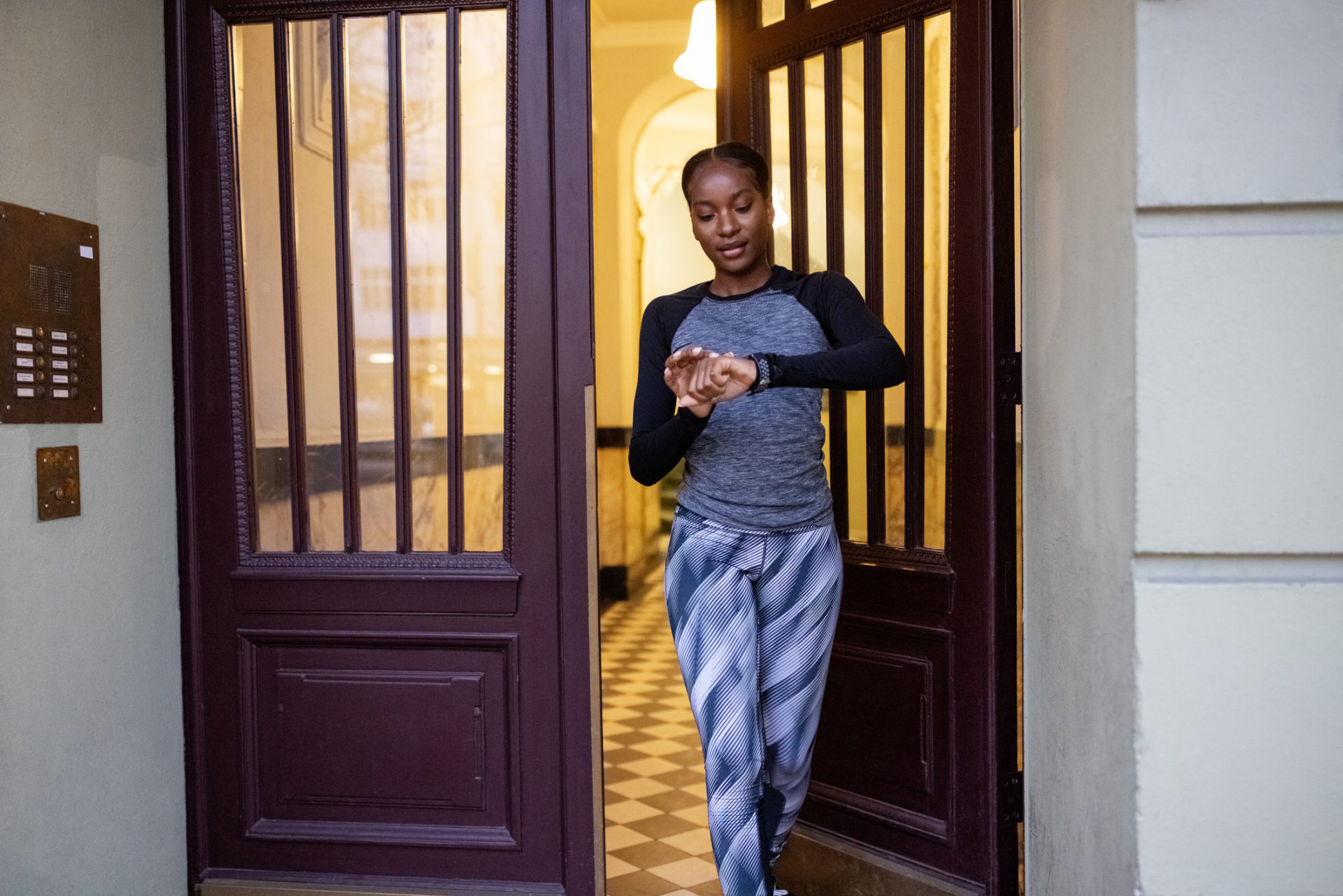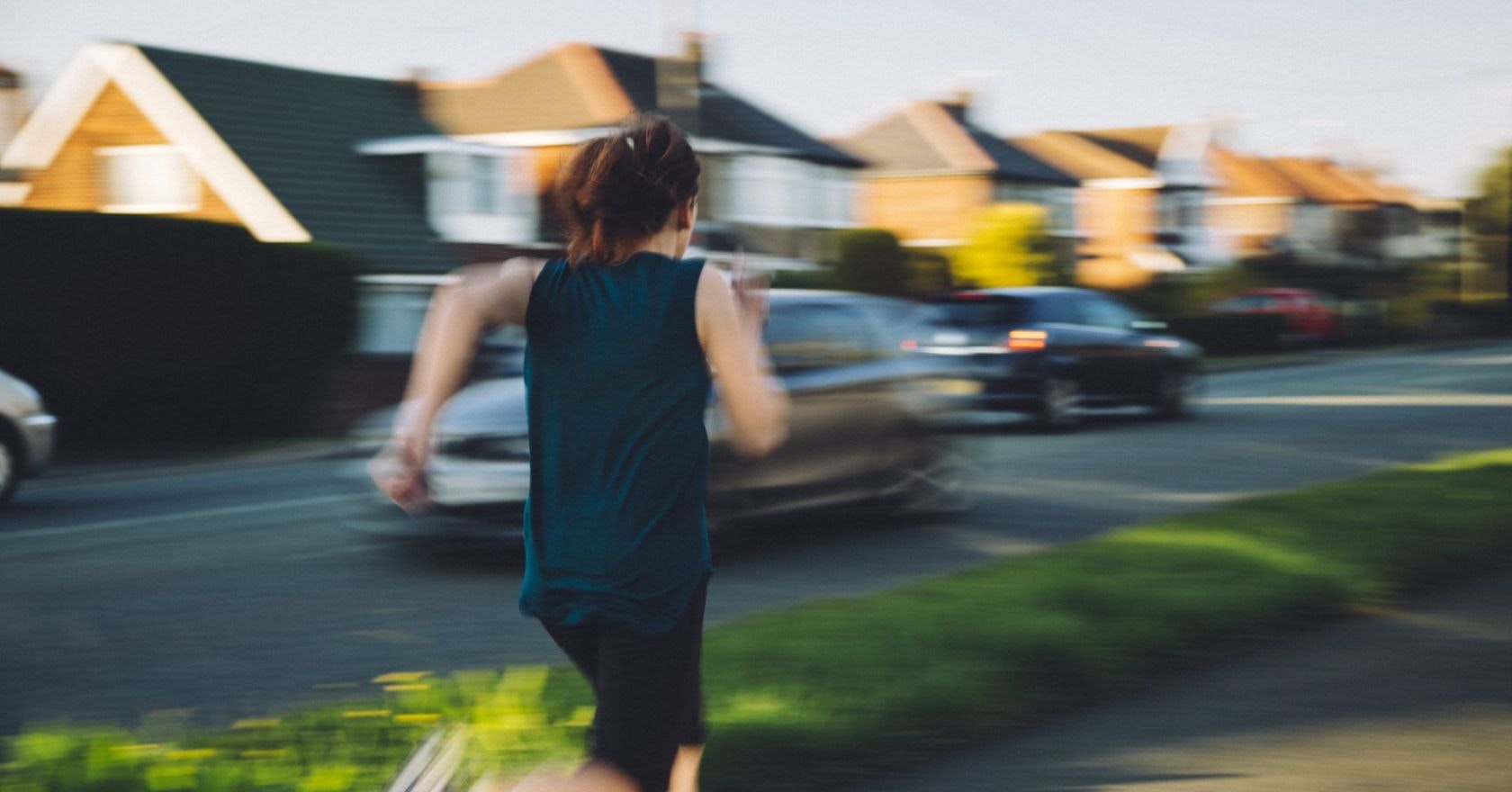You’re not the only person who finds themselves desperately needing the loo after a bout of cardio…
There are times in life when you just need to run to the toilet. It might be a recent increase in fibre, a belly-liquifying hangover or a monthly period poo. And then you have the overwhelming urge that hits moments into a jog or cardio workout.
If there’s one running question I’m often asked, it’s how to deal with the trots while out on a jog. After a few years, you lose all shame when it comes to diarrhoea and running; I’ve seen runners squat down a few meters from a rural marathon start line and deviate from the race course to run behind hedgerows. When you’ve got to go, you’ve got to go.
You may also like
Period poo: here’s why it’s so common to get the runs during your period
The question is: why does cardio seem to result in the runs, and can (and should) you try to stop it?
Why do we experience ‘cardio poo’?
“Movement of any kind helps to stimulate peristalsis (the contraction of small muscles in the intestine which helps food to move through the gut),” explains Jo Travers, dietitian and Love Your Gut advisor. “Vigorous movement such as cardio exercise can do this even more so.”
That makes sense; you might be fine lying in bed but need to swiftly return home a few moments into your morning walk. And that’s because things start moving around in your body as you go from being prostrate to upright and mobile. But why is it cardio in particular that seems to have this effect and not, say, strength training or pilates?

Well, Travers says that it’s “definitely plausible” that cardio workouts might elicit a stronger gut reaction than other types of exercise, and running is probably the exercise that prompts the most violent reaction.
“Running may make the need to go to the loo happen more quickly than walking, for example, as there is an impact element to it. You could compare it to trying to get ketchup out of the bottle – giving the bottle a bit of a shake or a tap helps it come out more quickly than just gravity alone.”
Gravity can make a difference though, Travers says. “Upright exercise like walking may elicit a bigger response than swimming or rowing, where the body is more horizontal.”
You may also like
Exercise can improve your gut health, according to a new study
When it comes to running, the need to poo is such a common phenomenon that it even has its own term: ‘runner’s trot’. Given just how common and visceral it seems to be, there must be something about running that puts the gut under so much stress.
So what is it about jogging in particular that seems to cause such gut chaos?
Lack of blood to the stomach
When we run, our muscles pull blood away from the digestive system. They need fresh blood to keep on moving, but that means certain organs like the colon have less blood flow than usual and that can send them into panic mode. And panic = the squits.
Increased gut motility
“Running improves overall circulation, which helps move waste along the digestive tract,” registered nurse Nancy Mitchell previously told Stylist.
“As your heart rate increases, it stimulates your intestinal muscles to expel any lingering undigested waste. It’s why some runners experience sudden urges to use the bathroom, especially after an intense session.” And it does that by increasing gut motility, which is the expanding and contracting of the muscles in your GI tract.
Changes in chemical composition
A study, published in Clinical Science, found that out guts can undergo chemical changes during high-intensity workouts. Researchers discovered that our bodies produce endotoxins that get released into the bloodstream during ultramarathons, which then can produce an immune system response.
Obviously, that study was looking at people running for hours and hours but if you’re building up your distance (perhaps running your first half marathon), it might suggest that the body produces toxins when it’s under extreme pressure – which an increase in distance might cause.
Pre-run food and drink choices
One of the best pieces of running advice I’ve ever received was simple: ‘coffee, poo, coffee, poo’. In other words, wake up, have a cup of coffee, nip to the loo and come back for a second cup 30 minutes later to make sure that you’ve really flushed out your system.
We know that coffee can have a laxative effect and research suggests that it’s something of a gut health wonder drink – so not only do you decrease the risk of needing the loo on your run but you’re also boosting your gut health with gut-loving prebiotics.
If you’re eating highly fibrous or high-fat breakfasts, you might also want to change tack. The more fibre you consume, the more there is to… come back out.
You may also like
Coffee should be treated as a ‘health drink’ – and cheese is great for our guts, says Dr Tim Spector
How to avoid the need for a cardio poo
It’s believed that running may actually improve gut health, and having a regular sit-down is a key sign of a well-functioning system. Constantly needing a cardio poo probably isn’t a sign that you’ve got a problem (these are the troublesome poo signs to actually look out for) but it’s more than possible that your symptoms are being exacerbated by a general lack of movement.
That being said, it’s hardly pleasant having to worry about crapping in public, mid-session. You can reduce the risk by following the following tips:
Warm up properly
Travers recommends doing some gentle movement like walking beforehand and then trying some abdominal contractions (drawing in the abdominal muscles quickly and releasing), which she says “may stimulate a bowel movement before you start your session”.
Eat a light meal before and a larger one after
Now, you have two options: follow the coffee-poo rule above or swerve caffeine altogether if you’re sensitive. Travers errs on the side of caution, advising anyone worried to ditch the upper before a run and to make sure you’re eating something small and digestible. “You want to leave at least three hours between consuming a large meal and exercise.”
Move more during the day
“If you lead a fairly sedentary lifestyle outside of cardio sessions, I’d encourage more movement throughout the day,” says Travers.
Move around as much as you can during the day to keep bowel movements regular – the more you go in general, the less risk you’ll run when on a treadmill/road/spin bike.
Keep a note of which foods work for you
Diet is a highly individual thing. Someone might be fine running on an espresso and a bowl of muesli; others will find themselves struggling with acid reflux and dodgy stomach symptoms. Try a range of pre-run meals and make a note of which ones work for you.
Images: Getty
Source: Read Full Article
